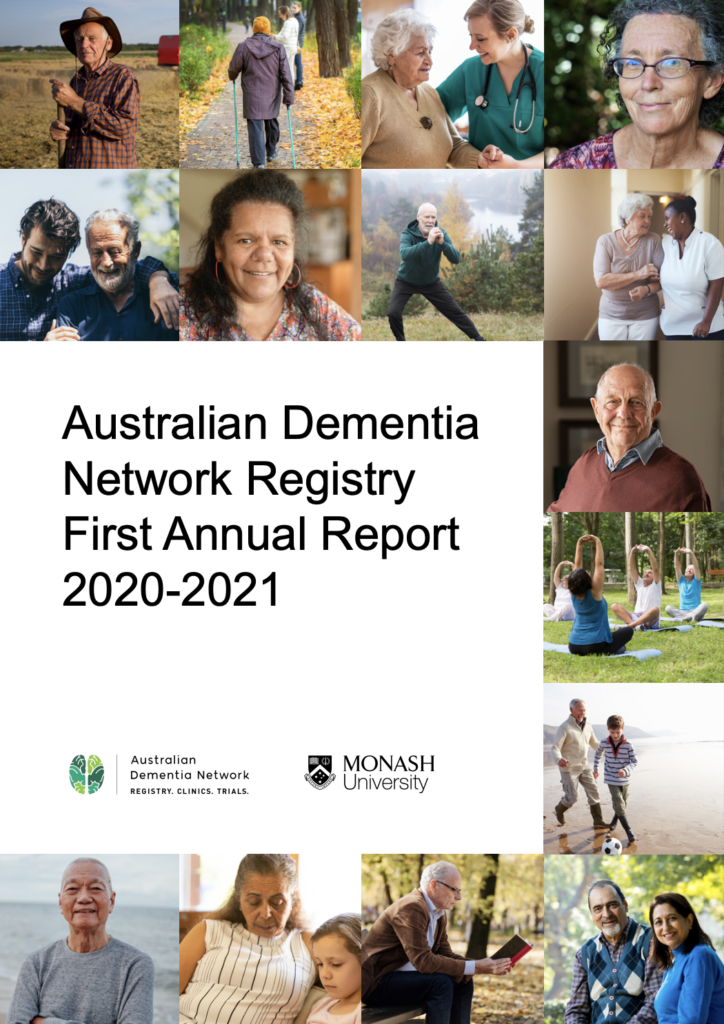
Dementia affects nearly half a million Australians and is the second leading cause of death and the third leading cause of disease burden in Australians aged over 65. Dementia leads to changes in memory and thinking skills, in day-to-day function, in psychological well-being and changes in the well-being of family members and caregivers. While scientists work towards identifying more effective treatments, the quality of care that can be provided by clinicians during diagnosis can make a positive difference to the experience and outcome of people living with dementia or prodromal dementia syndromes, such as mild cognitive impairment, along with their caregivers.
Until now there has been no national, systematic and co-ordinated approach to measuring the quality of dementia diagnosis and care, let alone having this type of data in a format that can readily allow clinicians, healthcare providers and policy-makers to monitor quality of care and improve performance, and better understand the experience and outcomes from the perspectives of patients and their caregivers.
The Australian Dementia Network (ADNeT) Registry, managed by Monash University, is the first clinical quality registry established to fill this critical information gap. Today the First Annual Report has been released, providing a “Report Card” on the quality of care being delivered to Australians diagnosed with dementia and mild cognitive impairment.
The ADNeT Registry aims to represent the diversity of populations impacted by dementia across all of Australia, including in regional and remote settings, in Aboriginal and Torres Strait Islanders and in culturally and linguistically diverse populations. The ADNeT Registry also has representation from the diverse clinical services involved in dementia diagnosis, such as public and private clinics and multidisciplinary or solo practitioner services. Importantly, people living with dementia, as well as carers of people living with dementia, have contributed to all aspects of the ADNeT Registry development.
Key facts contained in the first annual report:
- 80 years old was the median age for diagnosis of dementia · Dementia is prevalent in more women (56%) than men (44%) in the ADNeT Registry
- Nearly 40% of persons in the ADNeT Registry were born in a country other than Australia
- Over 40% of patients waited more than 3 months before having an appointment at a dementia and cognition clinical service after being referred
- Over three quarters of all new dementia diagnoses involve Alzheimer’s Disease
- Nearly one third of persons diagnosed with dementia are driving at the time of diagnosis
- Nearly 30% of those diagnosed with dementia are living alone at the time of diagnosis, with this group potentially more vulnerable to increased risk of hospitalisation or entry into residential aged care
- There are significant variations in prescription of acetyl cholinesterase inhibitors for persons diagnosed with Alzheimer’s type dementia.
Dr Stephanie Ward, ADNeT Registry Clinical Lead and Senior Research Fellow at UNSW’s Centre for Healthy Brain Ageing (CHeBA) said, “The diagnosis and clinical care for dementia, and syndromes that may represent the prodromal phases of dementia, such as mild cognitive impairment, provides lots of challenges for clinicians. Providing good care is complex but participating in the ADNeT Registry allows us clinicians an important opportunity to benchmark our performance and understand the true experience of our community. The Registry supports clinicians like me to deliver the best possible care that we can.”
ADNeT Registry Steering Committee co-chair and Co-Director of CHeBA, Professor Henry Brodaty said, “The aim of the ADNeT Registry is to drive continuous improvements in diagnostics and care. Ultimately, these support clinicians to deliver the best standard of dementia diagnosis and care and enhance patient outcomes, which is the most important objective of the ADNeT Registry.”
Into the future, when new diagnostics and therapies for dementia become available, the ADNeT Registry will be essential in ensuring that uptake is appropriate and equitable, and longer-term outcomes can be assessed.
Dr Ward said, “Over the coming years, the ADNeT Registry will continue to expand and be extremely valuable in enhancing the quality of clinical data on dementia, as well as be vital to monitor the real-world impact of future diagnostics and therapeutics.”
READ THE ADNeT REGISTRY ANNUAL REPORT 2020-2021
DOWNLOAD THE KEY FINDINGS INFOGRAPHIC
About
The Australian Dementia Network is a partnership of leading dementia researchers from across Australia and led by the University of Melbourne. The ADNeT Registry is managed by Monash University. More information about the ADNeT Registry can be accessed on the ADNeT Registry website: www.australiandementianetwork.org.au/initiatives/clinical-quality-registry/
Dr Stephanie Ward and Professor Henry Brodaty are available for interviews.
MEDIA CONTACT: Kasey Wallis- ADNeT Registry Program Manager | E: adnet.registry@monash.edu
BIOS
DR STEPHANIE WARD
ADNeT Registry Clinical Lead and Steering Committee Co-Chair
Dr Stephanie Ward BMed FRACP MPH is a Senior Research Fellow at UNSW’s Centre of Healthy Brain Ageing (CHeBA), adjunct Senior Research Fellow at Monash University, and a geriatrician (specialist doctor for older people) experienced in the diagnosis and care of persons living with dementia and cognitive impairment in a variety of settings.
PROF HENRY BRODATY
ADNeT Chief Investigator and ADNeT Registry Steering Committee Co-Chair
Prof Henry Brodaty AO, MB BS, MD, DSc, FRACP, FRANZCP, FAHMS is a researcher, clinician, policy advisor and strong advocate for people with dementia and their carers. At UNSW Sydney, he is Co-Director of UNSW’s Centre for Healthy Brain Ageing (CHeBA) and Scientia Professor of Ageing and Mental Health.